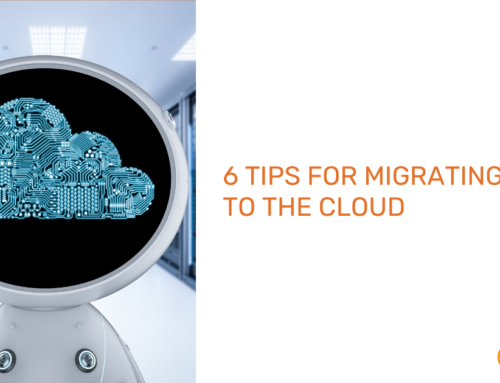What’s Phone System is Right for YOUR Business?
If you’re looking for a new business phone system, there are several questions you need to answer first.
- Do you need a full phone system that includes physical office telephones, or could your business get by with a virtual phone service that relies on mobile devices (cellphones, tablets, laptop) instead of traditional office phones?
- If you do need office telephones, what kind of service do you want? You need to choose between a traditional landline telephone service, which is provided by a local or regional phone company, and a Voice over Internet Protocol (VoIP) system, which runs over the internet like Clarity Voice?
- If you choose VoIP, do you want to incur the added expense of housing the system at your business (on-premises) or have it hosted by a cloud service provider?
We will help you answer these questions and more into today’s article, but if you already know what you need and just want to see our recommendations for the best business phone systems, request a free consultation.
If you're not sure yet, read on. We'll fill you in on the pros and cons these types of phone systems:
- Virtual phone systems
- Landlines
- VoIP
- Cloud and on-premises systems
Virtual Phone Systems
- Virtual phone systems work by connecting a main business phone number to remote workers through their mobile or home phones.
- These types of systems work as an extensive call-forwarding solution, wherein calls are transferred to each employee's designated phone (cell or home) when a customer or client calls a main business number.
- These systems include a variety of features, such as automated receptionists, voicemail, call forwarding, call screening and online faxing.
Pros: This type of service allows businesses with employees working from locations other than the company's office to present a professional face at all times. It also gives remote workers access to a variety of phone system features that mobile and home phones don't offer.
Cons: Virtual systems aren't full-fledged phone systems. Your calls are still processed on your mobile or home phone network. This means you are charged for the call on the virtual system and use up your mobile or home phone minutes. Additionally, companies may not be able to monitor these calls to aid in employee training or affirm quality assurance related to customer interactions.
Traditional Landline Systems
- Landlines in this instance are traditional phone systems, typically supported by a local or regional phone company. Sometimes called POTS lines (Plain Old Telephone System).
- Landlines, also known as public switched telephone networks (PSTNs), are analog systems that run via the telephone company's traditional copper wiring.
- To run a landline service, you need on-premises PBX (private branch exchange) hardware. This is the hardware that's used to create multiple extensions and allow for phone system features, such as call transferring and call directories.
- Some landline systems today are considered hybrids with VoIP systems. There is a traditional phone line that connects to a business's data network. The data network within the business is then used to connect each individual phone.
- Many landline systems are being phased out by phone system providers due to the cost and complexity to manage and maintain.
Pros: Landline systems are a reliable, time-tested solution that many companies are comfortable using.
Cons: Most phone system providers are moving away from landlines, making them more difficult not only to purchase, but to repair should something break. These systems also require IT staff to run and maintain.
VoIP Telephone Systems
- Instead of the copper wires that landlines employ, VoIP phone systems use the same high-speed internet connection that a company is already using to get online.
- VoIP systems provide features that previously only large corporations using expensive PBX hardware had access to, such as automated attendants, call queues, and computer integration that allows voicemails to be sent to email inboxes and computers to be turned into softphones.
- VoIP systems give remote workers access to a business's phone system from their mobile devices (cellphones, tablets and laptops).
Pros: VoIP systems provide a sophisticated phone system complete with all the bells and whistles at a controllable low cost compared to owning your own PBX. These systems are easy to set up and configure, and significantly cheaper than landline systems.
Cons: There are many ‘self-proclaimed experts’ that are not FCC registered or don’t fully understand the data requirements of setting up QoS Routing. Without proper installation expertise, your calls can become garbled or clipping of conversations can occur. Additionally, these systems rely on your internet connection. So, if you're in a community with spotty internet service, this type of phone system requires 4G LTE failover to be added to your network.
If you decide that a VoIP system will fit your needs, you now have another decision to make. While all landline systems require you to house the necessary equipment inside your business, VoIP systems give you the option to buy your equipment or to rent the equipment from your service provider and have the provider host it in the cloud.
Cloud-based VoIP Systems
- With cloud-based systems, there is no maintenance or hardware other than your desk phones to worry about. The service provider houses, maintains and upgrades all of the PBX technology for you.
- Some service providers like Clarity Voice also offer perpetual leasing options for desk phone equipment ensuring you’ll always have updated phones for life at a low monthly fee.
- The cloud allows growing businesses to easily add new lines and provides quick access to all the new features.
- Businesses typically pay a monthly fee on a per-user basis.
Pros: There is no PBX hardware or dial-tone service to purchase and maintain. Your provider takes care of that for you. You can set up and configure the system for your business, all from your computer.
Cons: You aren't in control of the hardware. If the system goes down, you have to rely on your provider to fix it as quickly as possible.
Best for: Growing businesses on a fixed budget that don't have an IT staff to operate and maintain PBX hardware. Also good for businesses that want quick access to new phone system features or have multiple locations and want their system all on one platform.
Now that you know the basics, you might be ready to make some decisions. Want to see our system demonstration?

Customer Support
Toll Free: 800.676.3995
Local: 248.436.3445
Monday-Friday 8am-9pm EST
Emergency support available 24 hours a day.
Visit our support page
Solutions by Industry
The best phone setup for a plumber is significantly different than the perfect solution for a pizza place. Our experience serving hundreds of franchisors, franchisees, and independent businesses, has taught us everything we need to know about the best way to configure a phone system to help you make more sales in your specific industry.
Jump to a page dedicated to your industry to learn more:
You deserve a dedicated Account Manager
From the start, you’ll be working with a Clarity Account Manager, dedicated to your business. More than a salesperson, a real professional who knows franchising inside and out, and understands the financial commitment you make in opening a location.

Business Phone System FAQs
Still not sure if you even need a business phone system, or if VoIP is a fit for you? No problem. Here are some questions and answers that may help.
Q: Do I need a phone system?
A: The simple answer is yes. Because so much of a business's success depends on how it presents itself, all businesses benefit from some sort of business phone system.
"We believe that no matter the size or type, every business should have the tools and solutions needed to professionally present themselves in todays competitive marketplace while maximizing their ability to work efficiently and stay connected to customers and co-workers," said Gary Goerke, founder of Clarity Voice, a business phone systems innovator.
Q: Can't my employees and I just use our mobile phones for business purposes?
A: It is definitely possible if you want to invest in a virtual phone system. Using a virtual phone system allows you to use your mobile device while still presenting a professional image.
Goerke said, however, that he wouldn't advise using mobile devices without a virtual softphone system. "While it may be intuitive, mobile phone plans are simply not set up to offer the same business features that specifically designed business phone systems offer. For example, mobile phones can't offer a virtual receptionist to answer calls and quickly and easily connect customers with the proper company contacts, or provide important business information like hours and directions. You don’t have the same control to listen to calls or gain analytical insights with mobile devices unless they’re linked to a softphone system like Clarity’s mobile workforce system"
Q: I've always had a traditional landline system. Will I be at a disadvantage if I continue using this type of system in the future?
A: The problem with landline systems isn't their functionality. They still operate at a high level. The biggest issue you will run into with traditional landline phone systems is that new options are no longer being built.
Melissa Swartz, founder of the telecommunications consulting firm Swartz Consulting, said the industry has moved away from the time-division multiplexing technology used in traditional landline systems, which has resulted in an end to research and development for these types of systems.
"No additional enhancements are coming," Swartz said. "The industry is concentrating R&D resources on VoIP, unified communications and cloud architectures."
In addition, she said, no software upgrades are available. This means you won't have access to many new features and capabilities.
Finally, technical expertise on these types of legacy systems is disappearing, according to Swartz. "Parts are still mostly available but will be getting harder to obtain," she said.
Q: How do I know which phone system and provider are right for my business?
A: The decision really comes down to the resources you have available. You need to consider your budget, whether you are a growing business, whether you have an IT staff capable of running and maintaining an in-house phone system, and whether you have access to a high-speed internet connection.
When you're choosing a phone provider, Swartz said it is important to look for one that offers more than just the tools and features you want in a phone system. She said you want a provider that has the technical expertise, time and resources to provide the level of support your business requires.
"Don't underestimate the importance of the support partner in your decision – make sure their company culture is customer centric and their service hours are 24/7," Swartz said.
Q: With cloud systems, is there only a monthly fee, or are there other costs I should be aware of?
A: Swartz said there can be some upfront costs with cloud-hosted phone systems. "Typically, you still have to pay for the IP phones and support equipment that reside on premise[s], so you don't totally avoid upfront costs unless the provider will 'rent/lease' the phones to you like Clarity Voice does."
In addition, some providers charge activation, installation, setup and training fees.
Q: With a cloud-hosted system, am I sharing a server with other businesses, or is there a server just for my business?
A: Many cloud phone system providers offer businesses the option of using a shared server or paying extra for their own dedicated server.
Swartz said choosing a dedicated or shared server depends on if you want the system solely devoted to you, or if you want to buy it as a service on the same platform the provider offers to everyone else.
"That is a good option for someone that doesn't have a lot of special requirements or need a lot of customization," Swartz said of shared servers. "If you are a large [organization] of thousands of employees with complex custom needs, that's not going to be a good option."
Q: Is the connection on a VoIP system as good as on a landline?
A: While some users might be concerned about the quality of a VoIP system and how it sounds, the technology has come so far that it's nearly impossible to tell the difference between landline and internet-based calls.
"It's highly comparable, if not actually better," said Melissa Fisher, Chief Operating Officer for Clarity Voice. "A lot of carriers have switched to VoIP-based systems, and most folks can't tell the difference. Phones from Poly offer HD Voice and Acoustical Fencing which serves as background noise canceling. Busy call centers and noisy auto service customers love this new feature"
However, to make sure call quality remains clear and strong, businesses have to be diligent about how they set up their data network, according to Fisher.
"You have to set aside a certain amount of your internet bandwidth to ensure that that call has quality, and the voice call has to take priority over your other traffic," Fisher said. “Additionally, how you set up your router using Quality of Service configurations impact quality too which is why Clarity Voice has pre-configured routers and offer Watchdog Services (an SD-WAN device with monitoring service) to ensure voice traffic is prioritized properly.”
Q: What types of features are available in a VoIP phone system?
A: While feature-rich phone systems were previously used only by large corporations, today's VoIP options give small businesses the same benefits. Here are some of the features you may find most beneficial:
- Voicemail
- Voicemail-to-Email
- Voicemail-to-Text
- Voicemail Transcription
- Call Forwarding
- Call Recording
- Call Queues
- The option of both local and toll-free numbers
- Interoffice Instant Messaging
- Conference Calling
- Automated Attendants
- Extension Dialing
- Ring Groups
- Directory Assistance
- Call Transferring
- Internet Faxing
- Call Reports
- Call Monitoring
- Missed Call Notifications
- Multiple Confrence Calling Options
- SMS Text Instant Messaging
- API Integrations with popular programs, such as Microsoft Outlook, Salesforce and hundreds of popular point-of-sales(POS) and Customer Relationship Management (CRM) systems
Q: Can remote employees access a business phone system?
A: VoIP technology gives employees the freedom to take and make business calls from anywhere, without the need for a business-dedicated cell phone or give out their personal phone numbers. Business VoIP systems offer smartphone applications and mobility features that give employees the full functionality of their desk phones anytime, anywhere.
Q: Why should I care if my employees can access the phone system when they're out of the office?
A: Mobility features are helping employers show that their employees are always there to take care of their customers' needs. Whereas previously, employees could only use their personal cell phones to speak with clients when they were away from their desks, business phone system mobility tools allow workers to be reached without giving out their private numbers when they want to be contacted outside the office, Fisher explained.
"It allows you to represent yourself with your business identity," she said.
Q: If my business has multiple locations, does it matter if I have an on-premises or a cloud-based system?
A: While both on-premises and hosted systems can support organizations with multiple locations, using a hosted solution can simplify things, Fisher said. "If you have a lot of distributed sites and you need to talk together, it is a way to standardize and consolidate it onto one platform."
Now that you know the types of phone systems available and what each one offers, you need to determine which provider is best for you. Here are some factors you may want to use in your evaluation:
- Are they FCC registered? You want to work with a company you can count. Non-registered companies can literally go out of business overnight. Don’t put your business in the hands of fly-by-night carriers.
- Initial Support – While many companies will claim to have support many business models are managed by the one and done method – you buy a IP phone in a box and their done. You don’t want the headache of fumbling to install your system by yourself – make sure they have virtual installation or onsite professionals that can help you with set-up.
- Technical Support vs Customer Service – Customer Service departments that offer friendly voices, but lack technical expertise is little help when issues arise. You don’t want to talk to someone from another country who doesn’t know the business challenges you face each day or how the technology you rely on works. Make sure you have 24-hour, seven day a week technical service supports all 365 days a year. You never know when issue may occur, and with any technology, unanticipated issues can happen.
- Not My Problem Syndrome – Will your service provider make the effort to help you understand what is impacting your service? Will work on your behalf to solve issue with Internet Service Providers or Carriers? At Clarity we go even further with our complementary Internet Concierge service to ensure you’re not paying too much for your internet service and Watchdog Monitoring Service that helps ensure your communications are prioritized properly. Lastly in the case of internet or power outages, Clarity offers failover devices that will ensure you’ll never miss a call not mater what mother nature may throw at you.
- Predictable Billing – Know what your total cost will be. Many companies’ burry extra costs in ‘fees’. Billing can change monthly making budgeting difficult. With Clarity Voice you’ll get one fixed fee and multiple plans to choose from.



